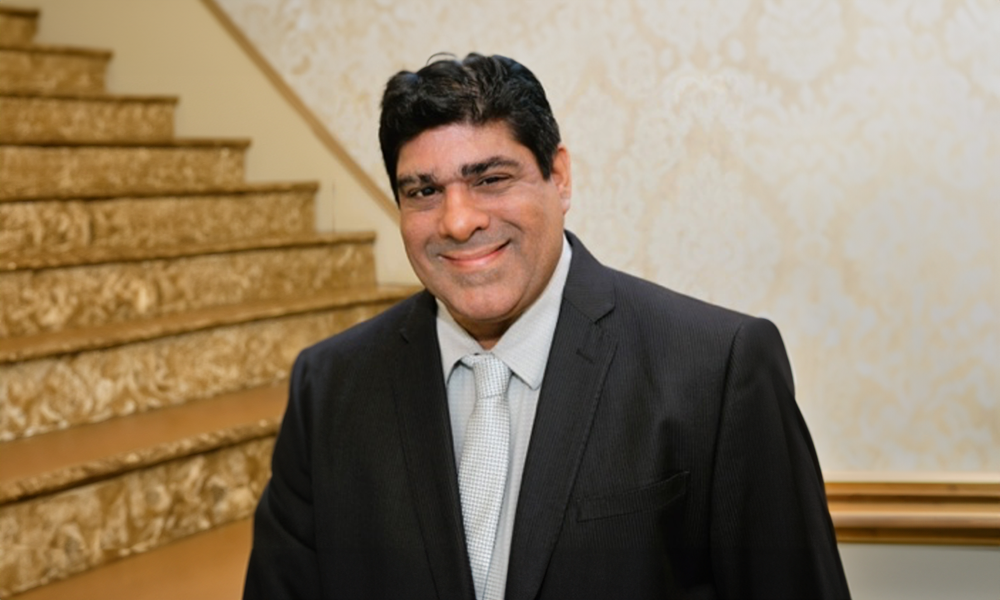More than two-thirds of residents say the Bay State is moving in the right direction, with significant majorities approving of the job that the state’s leaders are doing, according to the latest survey from the Western New England University Polling Institute.
The telephone survey of 468 adults, including 437 registered voters, found that 70 percent of adults view the state as “generally going in the right direction,” the highest percentage to offer that view since the Polling Institute began asking the question in 2008.
Fifty-eight percent of adults held that opinion the last time the Polling Institute posed the question in November 2015, while only 39 percent said the same in November 2008, at the height of the economic crisis.
In the survey, conducted Oct. 24 through Nov. 7, residents also gave high marks to the state’s elected leaders, with 68 percent of registered voters approving of the job Charlie Baker is doing as governor. Sixty-three percent of voters approve of the job U.S. Senator Elizabeth Warren is doing, while 53 percent said the same of U.S. Senator Ed Markey. Maura Healey, Massachusetts attorney general, has a 64 percent job approval rating.
The positive assessments that voters have of state officials contrasted sharply with their views of President Donald Trump, with only 19 percent of voters approving of the job Trump is doing and 76 percent disapproving. Fifty-five percent of Republican voters approve of the job Trump is doing, while only four percent of Democrats and 22 percent of unenrolled voters said the same.
The survey also found:
- 73 percent of survey respondents rated the national economy as “very good” or “fairly good,” up from 40 percent in November 2013 and only four percent at the height of the recession in November 2008.
- While the overall assessment of the national economy is positive, there are concerns. One-third of adults think the economy will get worse within the next 12 months, while 22 percent say it will get better and 39 percent say it will stay about the same.
- Views on the most important problem facing Massachusetts have become more spread out. While in previous surveys the largest percentage of responses cited the economy, in the latest survey four sets of issues were uppermost in the minds of adults: taxes and government spending (12 percent); health care (11 percent); drug addiction and the opioid epidemic (10 percent); and the economy (10 percent).
- 65 percent of adults now support the Affordable Care Act, up from 56 percent in November 2015; 74 percent of adults want President Trump and Congress to improve the ACA while only 18 percent support repealing and replacing it; and while only a quarter of respondents had heard or read much about a proposal to extend Medicare to all, 56 percent said they support the idea.
"The survey results reflect a state that seems to think things are going well for now," said Tim Vercellotti, professor of political science and director of the Polling Institute at Western New England University. "Survey respondents tend to have positive views of state officials, but many hold negative views of President Trump and are concerned about the future of the national economy."
Views of Governor Baker were positive across party lines, with 64 percent of Democrats, 72 percent of Republicans, and 71 percent voters of not enrolled in a party all approving of the job that he is doing. Senator Warren’s 63 percent job approval, on the other hand, reflected sharp partisan differences. Eighty-nine percent of Democrats approve of the job she is doing, as do 55 percent of unenrolled voters, while 64 percent of Republicans disapprove of the job she is doing. Both Baker and Warren are up for reelection in 2018.
Two-thirds of Democrats said they approve of the job Senator Markey is doing, as did about half of unenrolled voters and 38 percent of Republican voters. About one-fourth of voters either could not offer an assessment or declined to do so, despite Markey’s 37 years of service in the U.S. House of Representatives and four years in the U.S. Senate.
Vercellotti said that Markey, whose Senate term expires in 2020, is overshadowed by Warren, who has a strong national following as well as her base in Massachusetts. "Based on our past polling data, voters across the state are gradually getting to know him," Vercellotti added. "But it appears to be difficult to share the stage with Warren."
Attorney General Maura Healey’s job approval rating rivals that of Warren, with 64 percent approving and only 16 percent disapproving. Twenty percent either could not offer an assessment or declined to do so. Healey also is up for reelection in 2018.
Vercellotti noted that Healey has been in the public eye regularly since the beginning of President Trump’s term, joining attorneys general from other states in lawsuits over the president’s policies on health care subsidies, insurance coverage for contraceptives, and other issues. "Healey has clearly caught the public’s attention and has significant support among voters," Vercellotti said.
President Trump’s job approval rating of 19 percent in Massachusetts comes 12 months after he lost the state to Hillary Clinton by a margin of 60 percent to 33 percent. Republican voters in the latest survey were divided over the job that Trump is doing as president, with 55 percent approving and 36 percent disapproving. Republican voters expressed bullish views of the national economy with 85 percent rating it "very good" or "fairly good," compared to 67 percent of Democrats and 76 percent of unenrolled voters.
Voters were divided by party, however, on whether the economy will get better or worse over the next 12 months. Fifty-three percent of Republicans said the economy would get better, while 47 percent of Democrats predicted it would get worse.
"This party split in economic outlook is not unusual," Vercellotti said. "We have seen in past polling that members of the party holding the White House tend to be more optimistic, while members of the party that is out of power tend to be more pessimistic about the future."
Voters also were divided over the future of the Affordable Care Act. Eighty-seven percent of Democrats want President Trump and Congress to improve the Affordable care Act, and only seven percent favor repealing and replacing the law. More than half of Republicans support repealing and replacing the law, and 43 percent support improving the Affordable Care Act. Unenrolled voters are more likely to side with Democrats, with 72 percent favoring improvements to the law and only 20 percent backing repeal and replacement.
The survey found a low level of awareness of Vermont Senator Bernie Sanders’ proposal to lower the eligibility age for Medicare to include all Americans, an idea that has support from senators Warren and Markey. Only 24 percent of adults said they had heard or read "a lot" or "some" information about the plan, while 75 percent said they had heard or read "a little" information or "none at all."
Despite the low level of awareness, 56 percent of adults said they support the idea, while 31 percent said they were opposed. Among those who had heard or read "a lot" of information or "some" information, two-thirds endorsed the proposal.
Vercellotti said that, given the low level of awareness of the proposal, views on the issue may change should the idea advance. "Given the current party composition of the Senate, with the Republicans in control, we are not likely to see substantive debate of this proposal in the Senate any time soon," Vercellotti said. "But the initial data from Massachusetts indicate voters are at least receptive to the idea."
To view the full detailed report click here.
Or paste: www1.wne.edu/news/2017/11/masurvey_final_tables.pdf
METHODOLOGY
The Western New England University Polling Institute conducted a telephone survey using live interviewers Oct. 24 – Nov. 7, 2017. Western New England University sponsored and funded the study. The survey sample consists of telephone interviews in English only with 468 adults ages 18 and older drawn from across Massachusetts using random-digit-dialing. The sample yielded 437 adults who said they are registered to vote in Massachusetts. Interviewers at the Polling Institute dialed household telephone numbers, known as "landline numbers," and cell phone numbers using random samples obtained from Survey Sampling International of Shelton, CT. In order to draw a representative sample from the landline numbers, interviewers alternated asking for the youngest adult male or the youngest adult female age 18 or older who was home at the time of the call. Interviewers dialing cell phone numbers interviewed the respondent who answered the cell phone after confirming three things: (1) that the respondent was in a safe setting to complete the survey; (2) that the respondent was an adult age 18 or older; and (3) that the respondent was a resident of Massachusetts. The sample of all adults consisted of 241 interviews completed on landlines and 227 interviews completed on cell phones. The landline and cell phone data were combined and weighted to reflect the adult population of Massachusetts by gender, race, age, and county of residence using U.S. Census estimates for Massachusetts. The data also were weighted to adjust for cell phone and landline usage based on state-level estimates for Massachusetts from the National Center for Health Statistics and to adjust for voter registration by party using figures from the office of the Massachusetts Secretary of the Commonwealth. Complete results of the poll and the full text of the landline and cell phone versions of the survey are available at http://www1.wne.edu/polling-institute/index.cfm.
All surveys are subject to sampling error, which is the expected probable difference between interviewing everyone in a population versus a scientific sampling drawn from that population. The margin of sampling error for a sample of 468 adults is +/- 4.5 percent at a 95 percent confidence interval, and the margin of sampling error for a sample of 437 registered voters is +/- 5 percent at a 95 percent confidence interval. Thus if 65 percent of registered voters said they approve of the job that Charlie Baker is doing as governor, one would be 95 percent sure that the true figure would be between 60 percent and 70 percent (65 percent +/- 5 percent) had all registered voters in Massachusetts been interviewed, rather than just a sample. Sampling error increases as the sample size decreases, so statements based on various population subgroups are subject to more error than are statements based on the total sample. Sampling error does not take into account other sources of variation inherent in public opinion studies, such as non-response, question wording, or context effects.
Established in 2005, the Western New England University Polling Institute conducts research on issues of importance to Massachusetts and the region. The Institute provides the University’s faculty and students with opportunities to participate in public opinion research. The Institute is a charter member of the Transparency Initiative, sponsored by the American Association for Public Opinion Research. The Transparency Initiative supports greater openness in the reporting of survey research methodology. Additional information about the Polling Institute is available from Dr. Tim Vercellotti, director of the Polling Institute, at polling@wne.edu.





